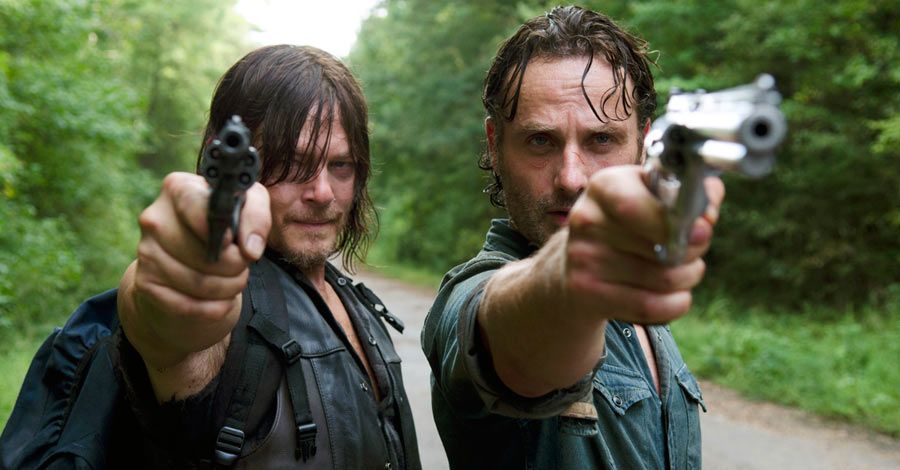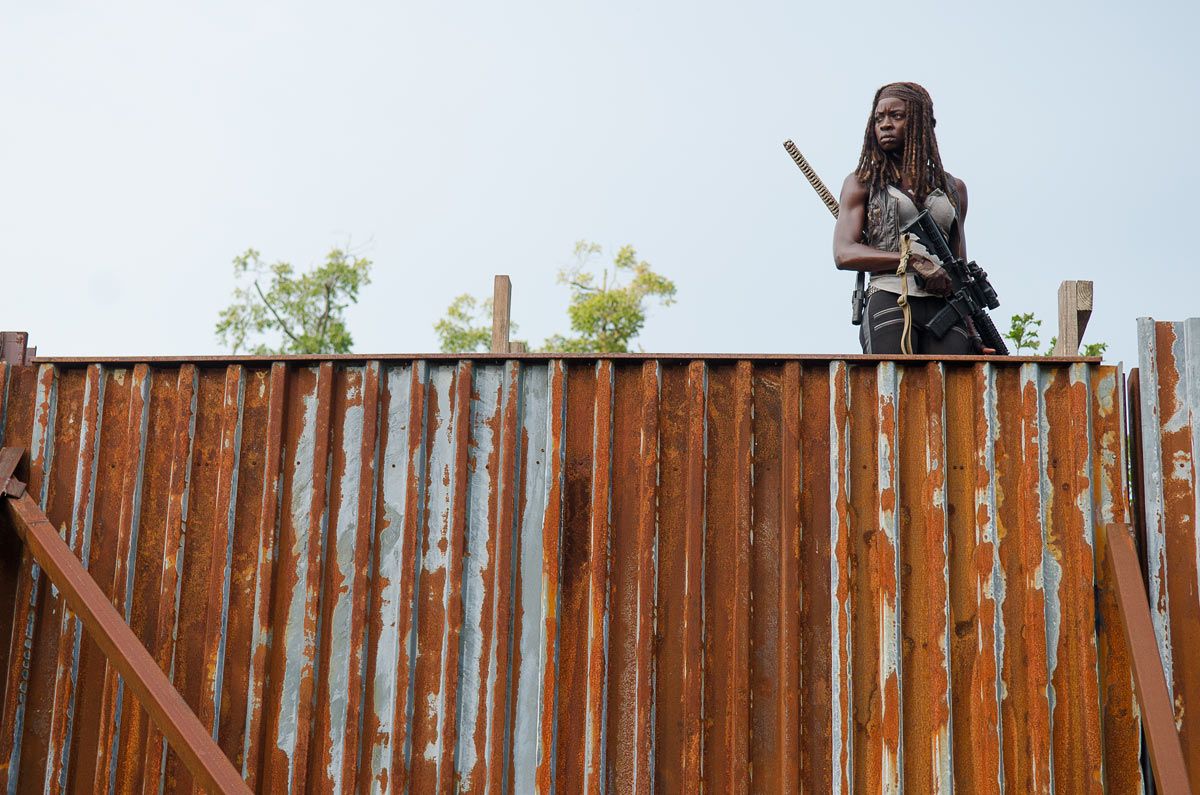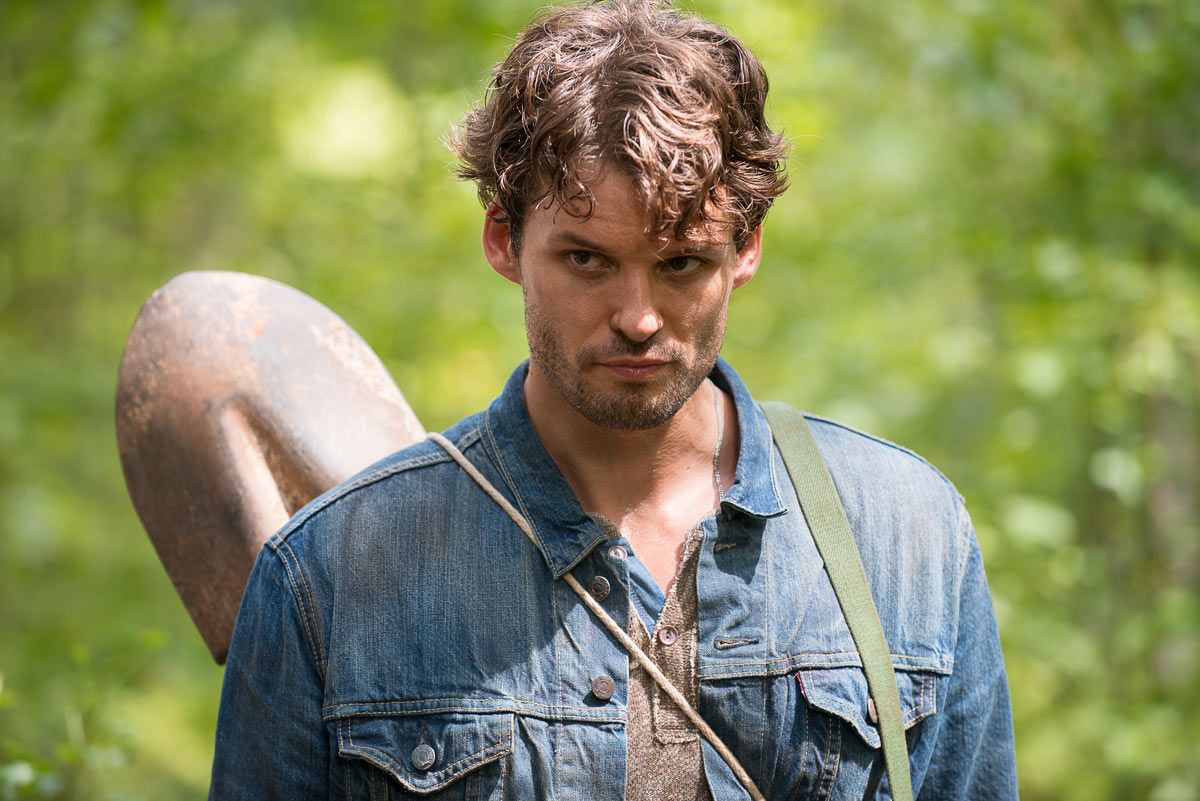Since the roots of The Walking Dead" are in survival horror, it makes sense that the show's writers often use grisly action sequences to develop the characters. But the series -- now in its sixth year -- has been on the air long enough now that the violence can often be a crutch; a device for the showrunners to fall back on when they're not sure what else to do with the story. That's not always the case, but it does happen from time to time.
As a result, some of the best episodes of the past couple seasons have focused on quieter moments between the characters (Morgan's backstory in "Here's Not Here" comes to mind), and why not? It's important to see these periods of serenity, when Rick, Carl, Carol, Glenn, Maggie, or whoever are just free to be themselves. Otherwise, what are they all fighting for? Also, if we're looking at it in simpler terms, a more relaxed pace is likely to be compelling because it's not the norm of the show.
"The Next World" could have easily gone the other way after the events of "No Way Out", where The Saviors still remained at large and Carl's life was somewhat in limbo after getting his eye shot out. But, as if suspecting their audience needs a break (especially if the end of this season is going to be as dark as Andrew Lincoln has promised), writers Angela Kang and Corey Reed jump ahead by what seems like a few months to a year. Everything's relatively calm in Alexandria, with Carl back on his feet and he, Rick, Michonne, and Judith living together as a sort of nuclear family. From there, Kang and Reed keep the narrative focus tight by centering on Rick and Daryl as they go on a scavenging run.
After some relaxed conversation between the two where Rick, in what seems like a permanent resignation of his role as the Ricktator, confesses how at peace he is and how he was wrong about the Alexandrians, they hit the jackpot when stumbling upon a cube truck. The vehicle is already fully stocked with supplies -- from food to medicine to hygienic materials -- but before they can bring it back to Alexandria, it gets stolen by a drifter named Jesus (an appropriately twinkle-eyed Tom Payne). I won't spoil his eventual role in the comics for anyone who hasn't read them, but it's safe to say he'll probably stick around for a while.
Even though Jesus gets introduced as the episode's antagonist, "The Next World" never departs from its leisurely pace, as if Rick and Daryl are merely on a daylong fishing trip. Given their string of bad luck, they pursue Jesus like they knew this was going to happen, and indeed, their truck does end up at a bottom of a pond when they abandon it during a struggle with their foe. There's a great deal of loose comedy to the scene -- the sun lazily setting as Daryl and Jesus wrestle like cartoons and Rick looks on in shock when the unmanned truck rolls into the water.
Part of this has to do with Jesus' seemingly friendly demeanor. He seems good-natured enough, and when he steals from Rick and Daryl, there's no malice involved. He's like each of them: just a guy trying to survive. When they tangle with him, it's a far cry from the more brutal terror of villains like The Hunters or the Governor. Instead, he's a villain who has the potential to become a hero. Rick even goes as far to bring Jesus, tied up and unconscious, back to Alexandria. No doubt, some viewers will view this as a stupid decision, but remember, Rick's coldheartedness didn't exactly do wonders for the community in the long run, and it seems he's finally learned that the best way to survive is to unite with other people, not turn them away (as long as they're not a legitimate threat).
Like I said, it's unclear what the show's plan is for Jesus. For all I know, his TV equivalent is a maniac in waiting, playing nice until the most opportune moment to strike. But the final scene of the episode leads me to think otherwise. As Rick and Michonne turn their living arrangement from platonic to romantic for (I think) the first time, Jesus manages to break free and walk in on them while they're sleeping naked. He could easily kill them if he wanted to. But instead, he wakes them up and insists they need to talk.
If the Rick, Daryl and Jesus storyline succeeds for its surprising change of pace, the B-plot of Spencer putting a walker-fied Deanna out of her misery comes off as a little more tired. "The Walking Dead" has dealt with characters having to kill the zombie remnants of their loved ones plenty of times before. While Spencer's situation is somewhat different because there's no hesitance on his part to drive a knife through Deanna's skull, giving any of individual weight to zombies as characters just feels counterproductive these days. Even if it does lead to a sweet yet twisted promise between Carl and Michonne later on, there's more than enough potentially interesting material in the relationships of the living, especially when the stories are kept nice and quiet -- sometimes, anyway. The blood and guts are just as important.



